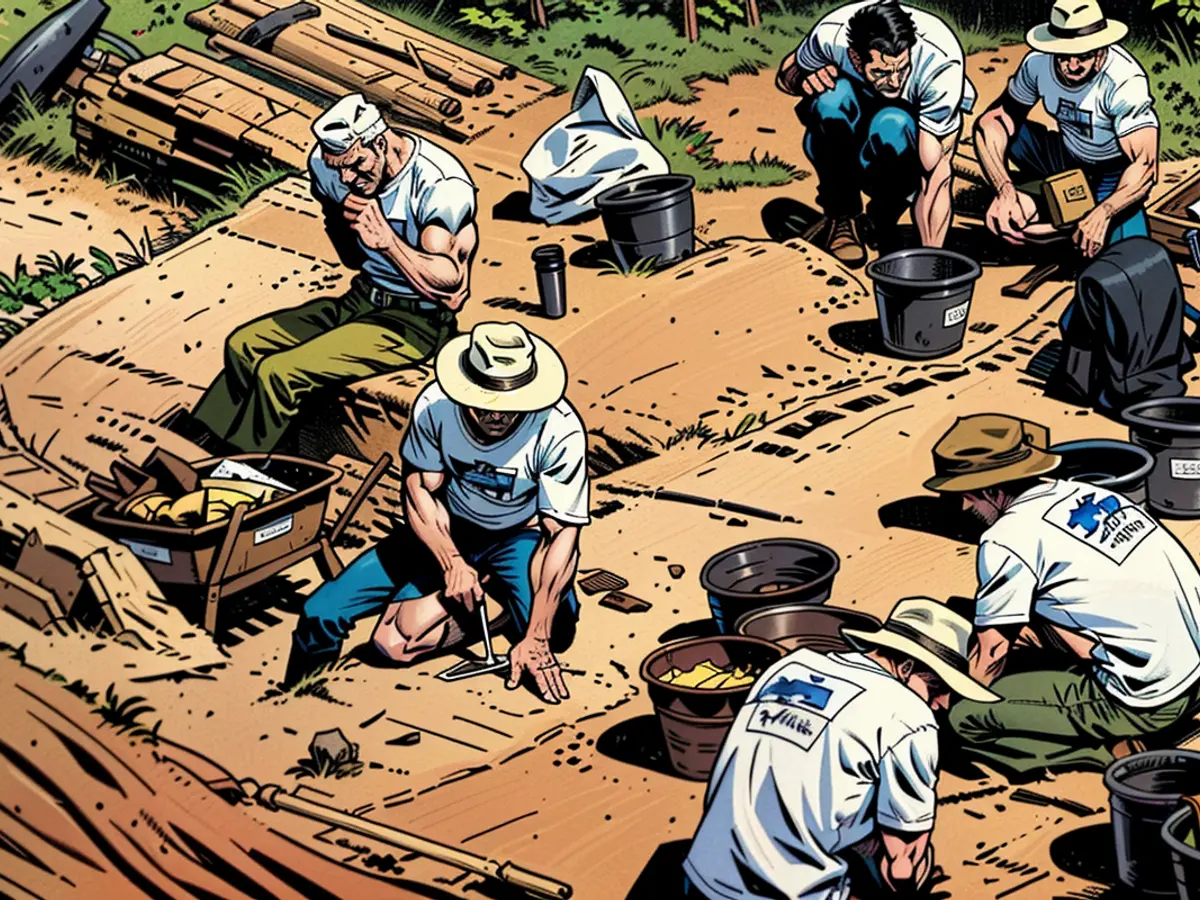Tyrannosaur - Researchers are searching for ursaurers again at Bromacker
At the fossil site Bromacker in the Thuringian Forest, digging resumes. An international team of approximately 40 scientists embark on the annual summer excavation, which will last until August 9th, in search of remnants of Sauropods and other traces from a long-past era, as the Friedenstein Foundation Gotha announced. The researchers, who aim to bring a 290 million-year-old world to light, come from countries such as Italy, France, Canada, and the Netherlands, according to reports.
Bromacker (district of Gotha) is one of the world's most significant fossil sites with skeletal finds of Sauropods. These provide insights into the evolution of herbivores and modern terrestrial animal ecosystems. Last year, researchers made over 300 discoveries there - among them were partial skeletons and bones of rare Sauropod species. Furthermore, traces of tracks and swimming trails, as well as other relics of plants, insects, arthropods, and vertebrates, were found during the previous excavation.
For interested parties, there are opportunities to observe the researchers up close during this fourth summer excavation. According to reports, German and English guided tours at the excavation site, as well as special events for children and family days, are offered.
The excavations at Bromacker are part of an interdisciplinary research project that is scheduled to run until 2025. Since 2020, the Friedenstein Foundation Gotha, the Friedrich Schiller University in Jena, the Unesco Global Geopark Thuringia Inselsberg-Drei Gleichen, and the Museum für Naturkunde Berlin have collaborated on this project.
Foundation on Bromacker Foundation over the Bromacker
- The geology of the Bromacker fossil site in the Thuringian Forest, historically part of Germany and France, has yielded valuable information for paleontology research.
- The international team of researchers, including experts from Italy, Germany, Canada, and the Netherlands, collaborate on their Gotha-based project to study the 290 million-year-old world at Bromacker.
- In addition to Sauropod remains, last year's excavations in Gotha's Bromacker revealed traces of animals and plants, expanding our understanding of ancient herbivore evolution and terrestrial ecosystems.
- As part of the interdisciplinary Bromacker research project, scholars from the Netherlands' Naturalis Biodiversity Center contribute to analyzing the fossilized insects and arthropods discovered in the Thuringian Forest.
- In September 2023, the Thuringia Geopark and the Museum für Naturkunde Berlin will organize a symposium on the Paleontology of Bromacker in Canada, showcasing the latest findings and promoting international cooperation in geology and paleontology.








